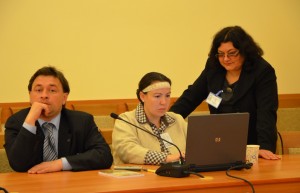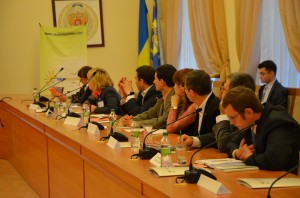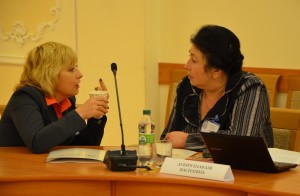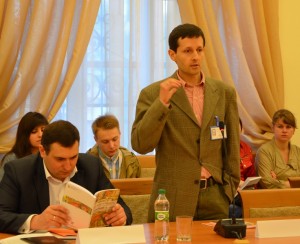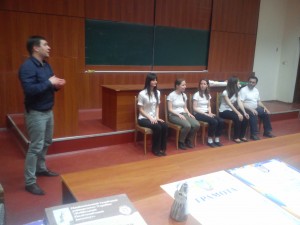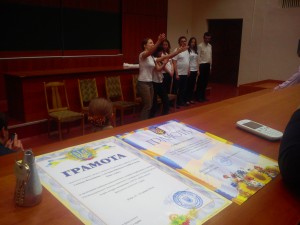On May 15-16, 2014, the Department of Sociology of the Faculty of Sociology and Law held the VIII International Scientific and Practical Conference “Social Work: Theory, History, Innovation”.

Student life, which we strive to join and the joyful and different memories of which accompany a person throughout life, is not limited to attending lectures and practical classes. For both students and teachers, a meaningful factor in professional life is the opportunity to interact, exchange ideas and present themselves as truth seekers and participants in exciting communications. All the above took place at the Scientific and Practical Conference “Social Work: Theory, History, Innovation”. The conference was international due to cooperation between the Faculty of Sociology and Law of the National Technical University of Ukraine “Igor Sikorsky Kyiv Polytechnic Institute” (Department of Sociology) with well-known domestic educational institutions and foreign co-organizers: Taras Shevchenko Kyiv National University, National Academy of Public Administration under the President of Ukraine, I. Mechnikov Odesa National University, Open International University of Human Development “Ukraine” and others, as well as the Center for Social Policy Research (Corvinus University, Budapest), Tallinn technological university and a number of other organizations such as Weston Consulting (Warsaw), Kyiv branch of the Ukrainian Institute of Positive Cross-Cultural Psychotherapy and Management “INSPIRIS”, YMCA Europe, etc., which are involved in educational activities indirectly. Their participation of these organizations and their master classes and trainings was fruitful and important, which was noted in particular by students of the Faculty of Biotechnology and Biotechnology, the Faculty of Management and Marketing, the Publishing and Printing Institute of “Igor Sikorsky Kyiv Polytechnic Institute” who had the opportunity to get acquainted with the social context and practical significance of their work. The students were convinced that the deprivation of the socio-humanitarian dimension of any profession impoverishes the latter, because the scientific and technological development of society is in many ways related to the development of the individual.
We consider the conference to be successful, as the combination of friendliness and ease with the discipline of scientific discourse stimulate the progress of finding answers to pressing issues that are both professionally outlined in the format of sociological knowledge, social work, and universal for management, modernization of the country, building it as a welfare state. The achievement of common good currently needs innovative approaches in the study and coordination of human relations: how to prevent an increase in the ranks of the underclass, and in spite of any crisis that becomes permanent in the context of globalization, to secure our citizens socially? How to motivate those able to work actively and organize the lives of those who really need government support, because they are in unfavorable circumstances or are uncompetitive from birth, given age, and so on? At the same time, how to emphasize the deployment of not medical, but incentive-organizational model of care, its targeting and preventive nature?
Each of us is endowed with freedoms and rights, dreams of self-realization and independence, but each of us can become a client of social care institutions. That is why it is so important to build the right system of social services and the need for interaction of different research programs – these theses were a common thread through the speeches of many conference participants: from famous professors to student speakers, future biotech engineers, sociologists, economists and cybernetics. The paradigm of humanistic efficiency united everyone in the desire to find adequate means for its implementation in solving the problems of the present and the future.
Based on the conference developments, a collection of abstracts was published:
Download_title
Download_abstracts

